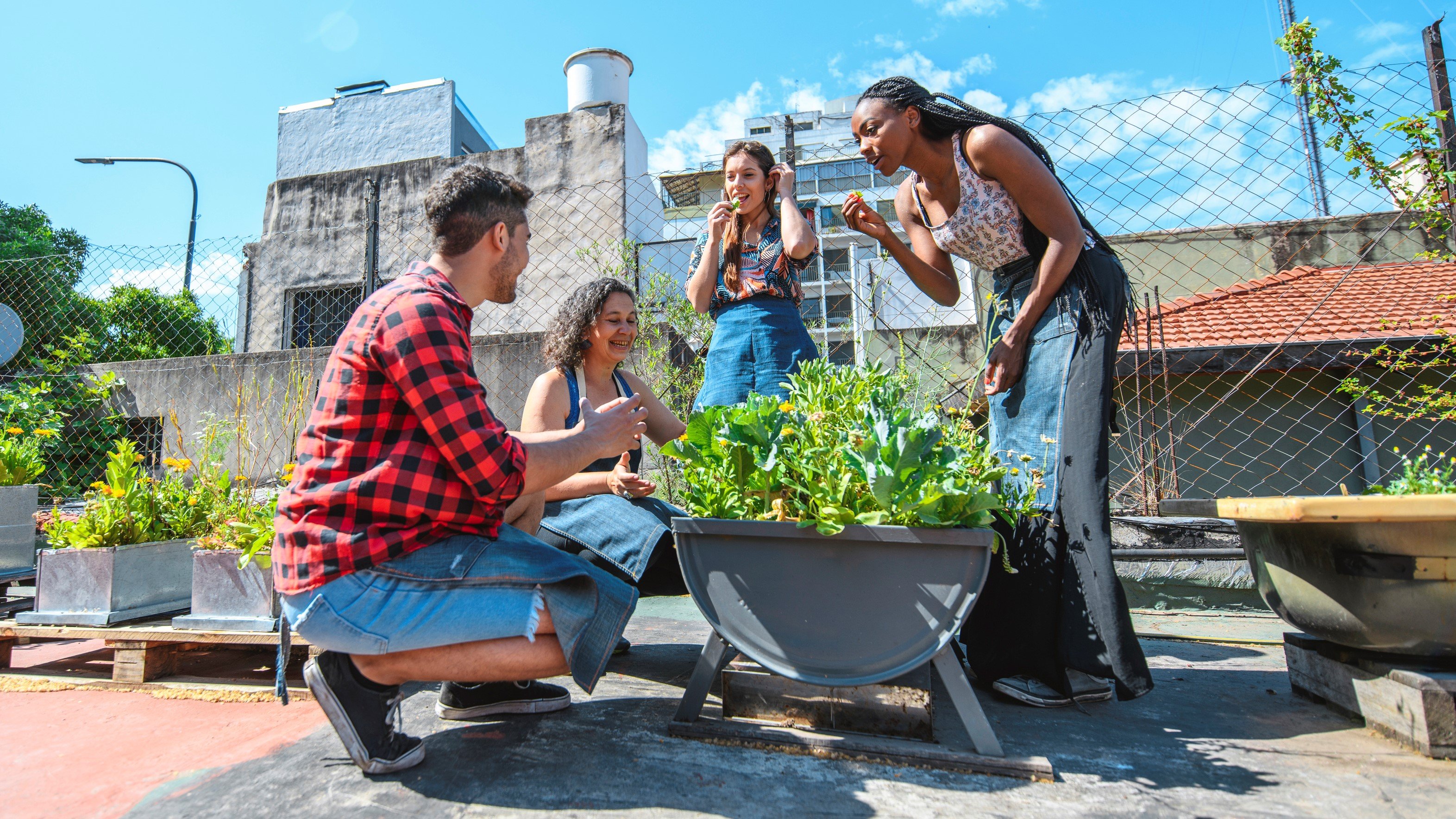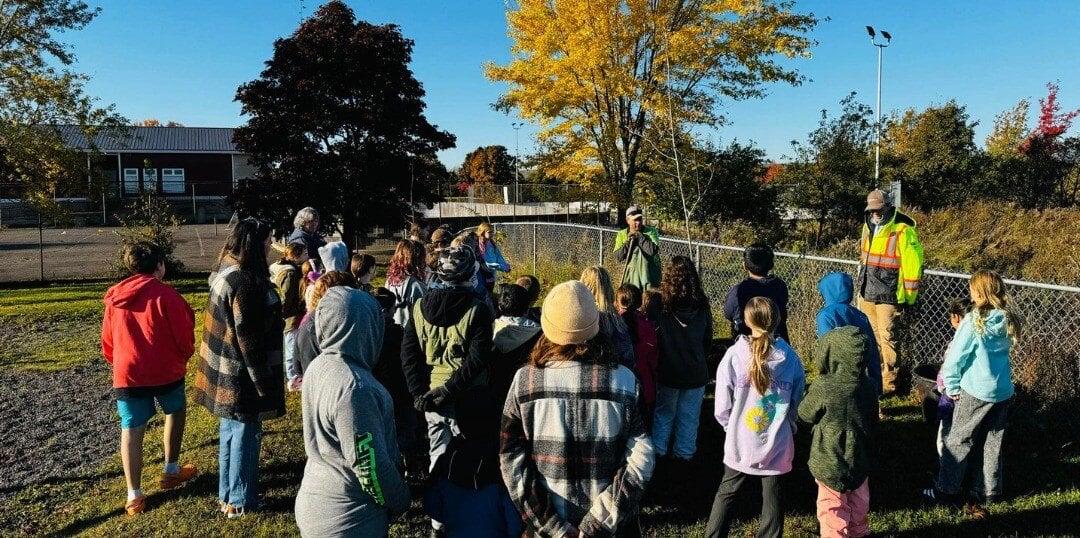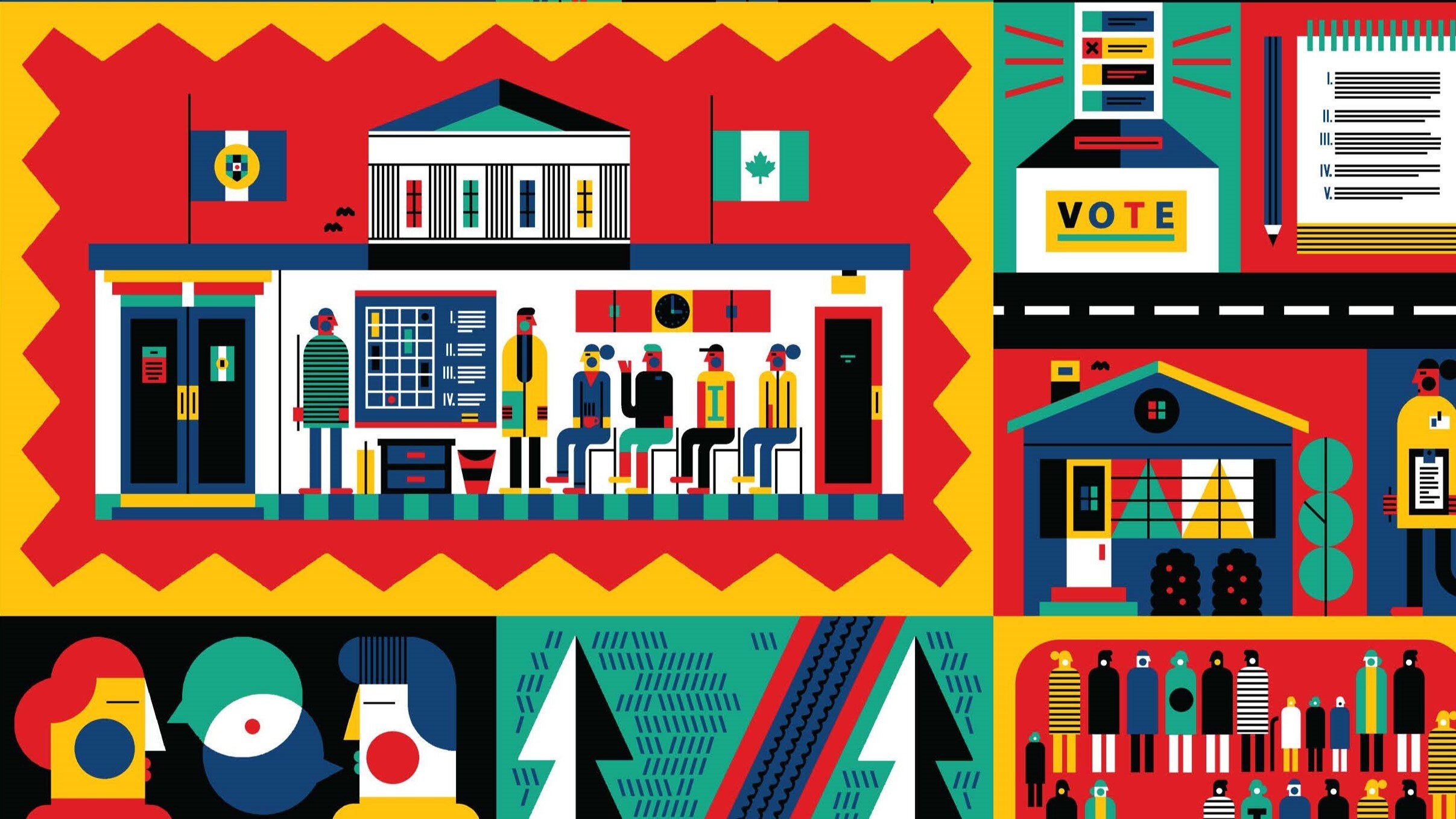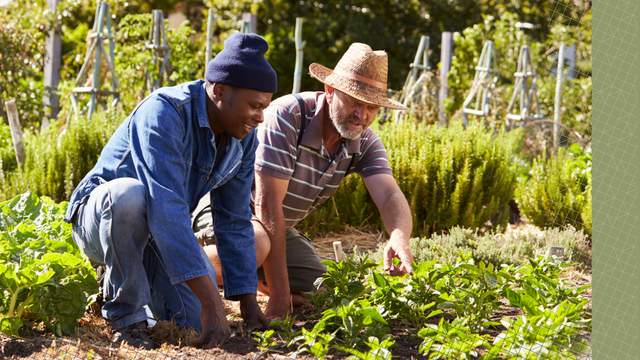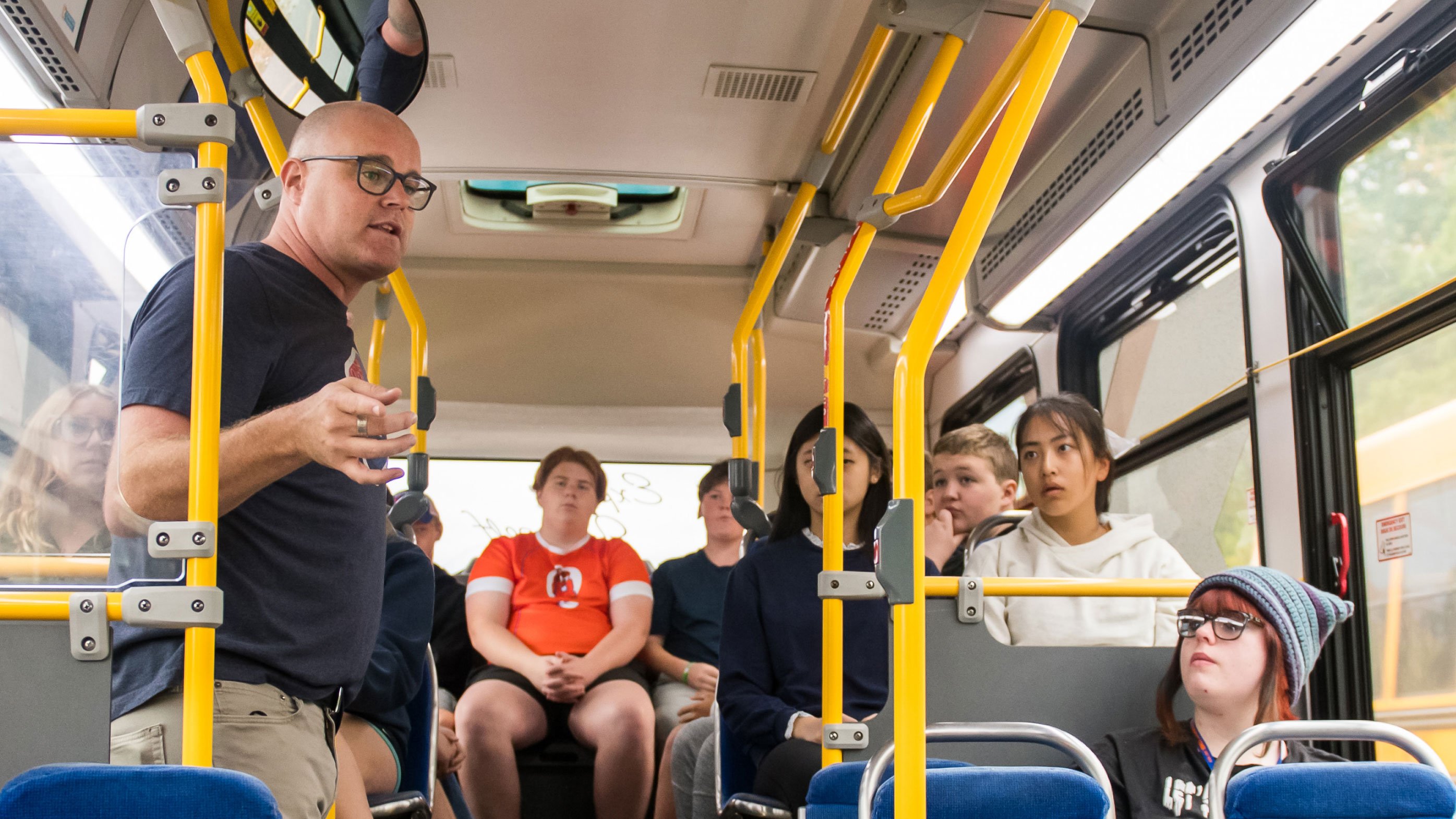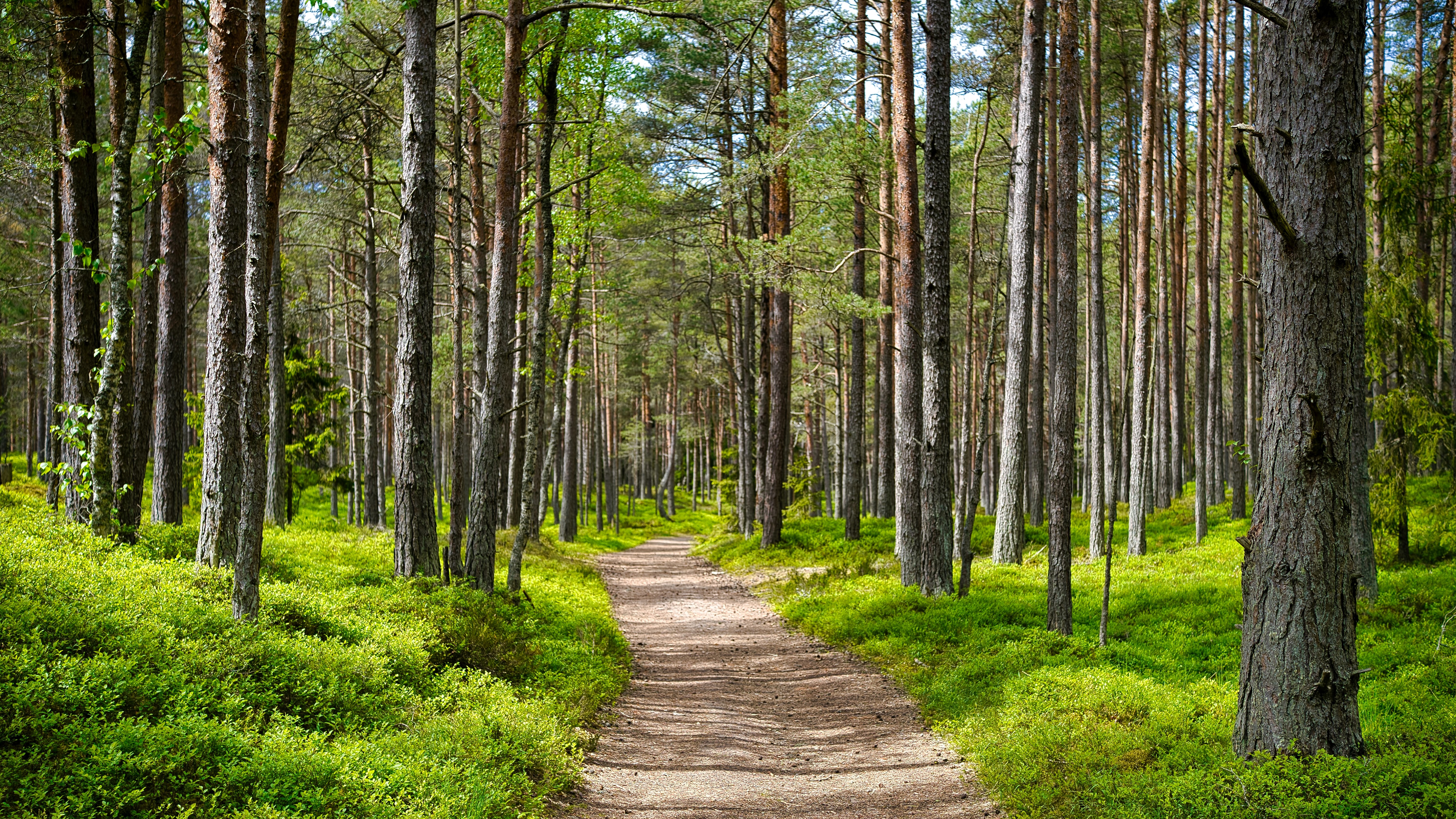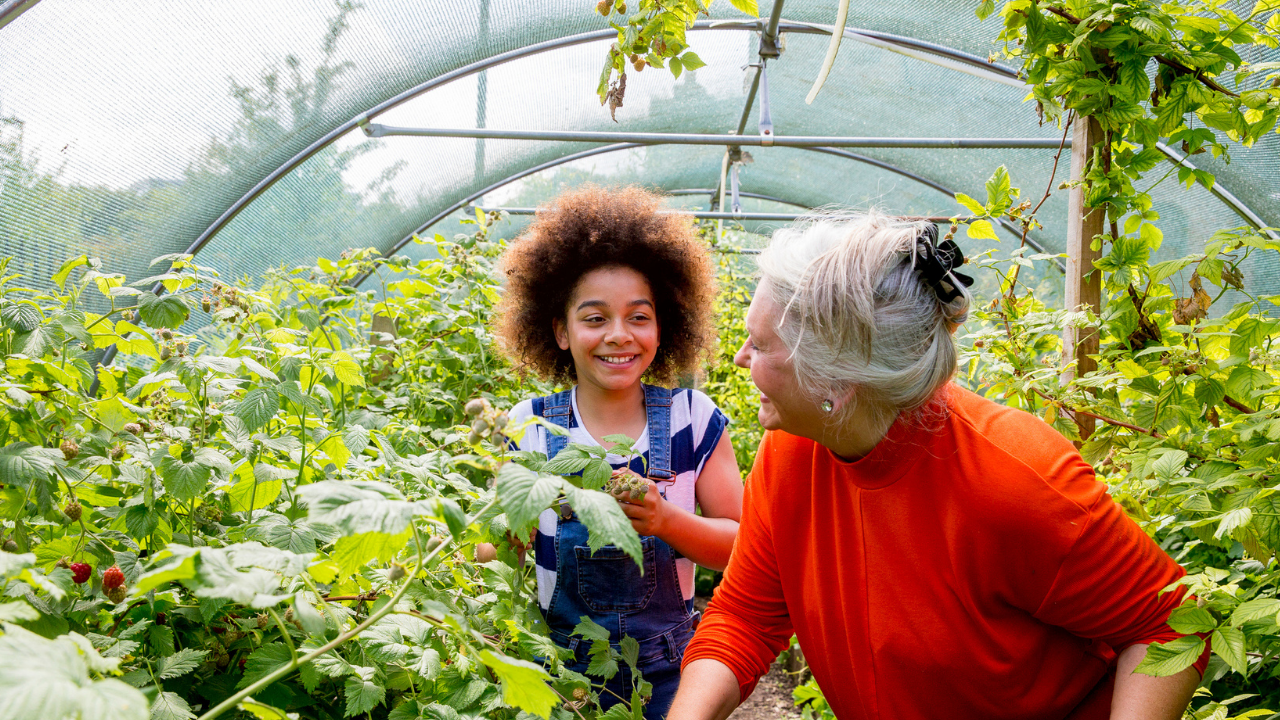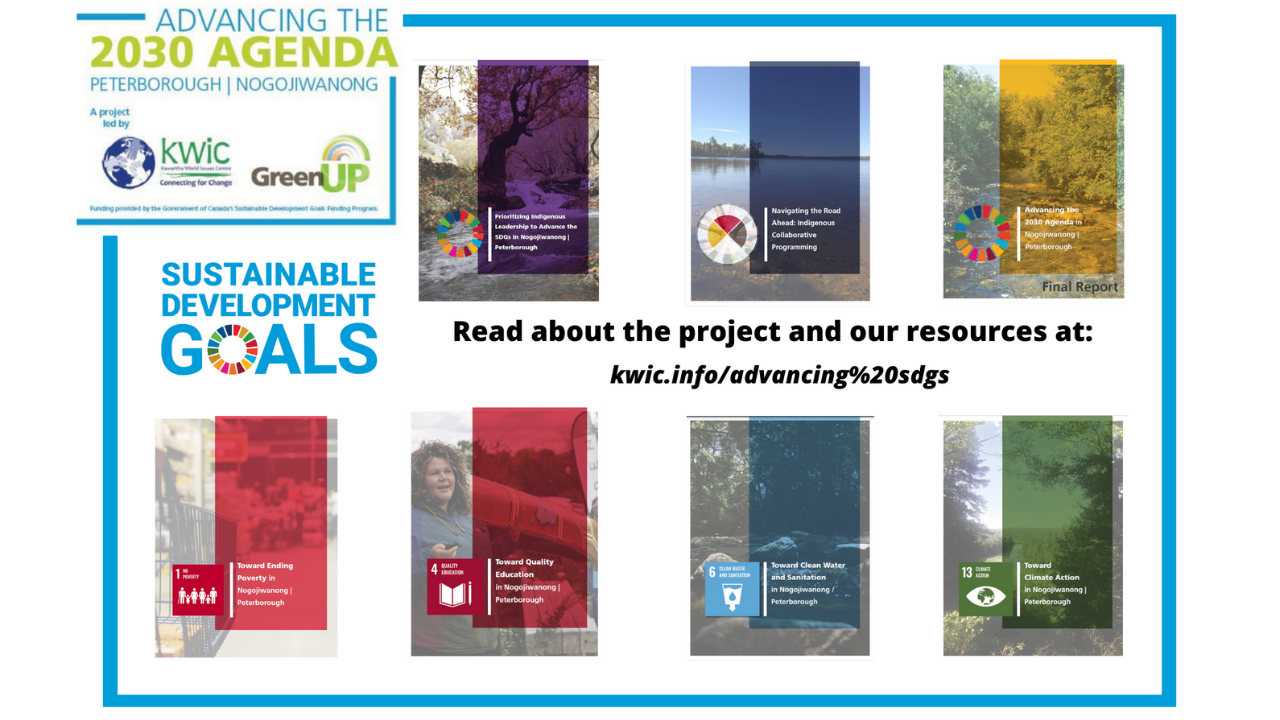The Tamarack Institute is a registered Canadian charity dedicated to ending poverty in all its forms, for good. We support real people and invest in real communities for long-term change.
This blog post was co-authored by Rohan Mishra (Town of New Glasgow) and Kieran Maingot (Tamarack Institute).
Photo above: A group of local students learning about tree planting and health to support the Town of New Glasgow's annual tree planting efforts.
Rural municipalities are at the forefront of responding to climate change. With 98% of the lands we call Canada being rural areas, these municipalities are on the frontlines acting as first responders, strategic planners, and action catalysts in the face of diverse climate impacts. While sometimes overshadowed by their urban counterparts, the climate leadership of rural municipalities has much to teach us. For example, because these municipalities have long histories of doing climate work with tight human and financial resources, naturally they have been harnessing local ingenuity and partnerships to achieve progress.
The story of New Glasgow, Nova Scotia (the ancestral lands of the Mi'kmaq peoples), is no different. One thread of the Town of New Glasgow story demonstrates the social and collaborative roles that municipalities can play in catalyzing community climate action.
New Glasgow is no stranger to climate leadership, having started its climate journey more than two decades ago when it first joined the Partners for Climate Protection (PCP) program. Since then, and many plans and wins later, the Town of New Glasgow has joined several campaigns and programs aimed at supporting climate transition efforts like Cities Race to Zero, Race to Resilience, ICLEI Canada’s Agents of Change Program, and now, Tamarack’s Community Climate Transitions Network.
The Town has two key plans driving its climate work: the Corporate Climate Action Plan and the Community Climate Action Plan. Both documents strategize on how to reduce local emissions through the Town’s infrastructure, industries, and neighbourhoods. This story, however, focuses on a topic that isn’t directly correlated with emissions reductions, but is equally critical: community engagement. Through this blog, we hope to share the Town’s journey taking up key social roles to enable strong community involvement in its climate leadership.
We will explore two standout programs that embody these social roles: The Net-Zero Volunteer Team and the Bee City Program. Afterward, we’ll look ahead to what’s in store for the Town of New Glasgow’s community engagement in 2025.

Photo: Shoppers browsing at the Nu-2-U second-hand clothing sale hosted by the Net Zero Volunteer Team in New Glasgow, Nova Scotia.
Net Zero Volunteer Team
Being part of the Net Zero Volunteers has been an incredibly rewarding experience. This dedicated group embodies a shared commitment to advancing New Glasgow's green initiatives. It's inspiring to see such a diverse team – comprising mainly school students and retired seniors – united in their efforts toward a common goal.
– Nancy MacRae, Member of the Net Zero Volunteer Team and Chair of the Town’s Climate Change Steering Committee
The Net-Zero Volunteer Team, launched with ICLEI’s support, brought together an intergenerational group of residents, many of whom are students and retirees, to co-develop and implement impactful local climate projects. In 2024, the group organized several garbage clean-ups as well as a second-hand sale titled ‘New Glasgow’s New to You Sale’, raising funds that were directed toward the Town’s annual tree-planting initiatives. The volunteer team’s efforts greatly helped the Town engage the wider community, including engaging school groups in tree planting, and created opportunities for collective action that fostered strong connections to local environmental stewardship.
The Town’s social roles are as follows:
-
Convening: Hosted and helped facilitate volunteer meetings while providing back-end support to coordinate the meetings themselves to ensure the residents were well-supported to come together and work collectively.
-
Capacity-Building: Provided funding resources to the volunteer team to execute their projects, including the second-hand sale, and offered in-kind support in the form of free space to meet.
- Community Engagement / Communication: Worked to meet folks where they are by having a presence at local events and local farmers markets, and postering in schools and public spaces to bring a diverse team of residents together.

Photo: A group of community members from Summer Street industries standing by a newly planted flower bed for New Glasgow's Bee City Campaign.
Bee City Campaign
In 2021, New Glasgow became the first Bee City in Nova Scotia, committing to three key actions: creating and enhancing pollinator habitat, educating the public about the role of pollinators, and celebrating Pollinator Week every June. The initiative has yielded remarkable results, including the creation of four beehives and 72 new flower beds and planters with the help of community partners, two of which were repurposed from donated old canoes.
In 2024, The Town adopted its official Bee City logo after a call was made to the community for logo designs. The contest received 11 design submissions, and 300 votes were cast to select a logo. The Town also celebrated Pollinator Week with a proclamation made by the Mayor, coupled with an engaging information session about Bees and how residents can start pollinator gardens.
The Town’s social roles are as follows:
-
Community Engagement: Mobilizing residents through creative activities like a logo design contest and the Pollinator Week events, fostering connection and education around pollinators and their importance.
-
Equitable Project Design: In partnership with Summer Street Industries, a local social enterprise supporting individuals with intellectual disabilities, the town engaged community members to help plant flowers in repurposed canoes. Together, they worked to ensure the garden projects and education work were accessible, inclusive, and meaningful for participants.
-
Public Space Animation: Leveraging public spaces for pollinator-friendly planting, while also creating spaces that brought residents together for moments of celebration and learning.
Looking Ahead to More Youth Engagement in 2025
Building on the successes of 2024, the Town’s focus for 2025 will shift towards deepening climate engagement with youth. With school groups already engaged in tree planting, the Town aims to inspire and empower young people further, recognizing them as key partners in addressing the climate crisis. A significant highlight of the upcoming year will be hosting Our Climate Quest – a travelling climate science exhibition at the Glasgow Square Theatre. This initiative will connect youth with critical climate issues in an interactive way, fostering knowledge and inspiring action.



